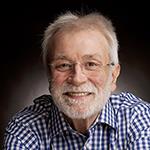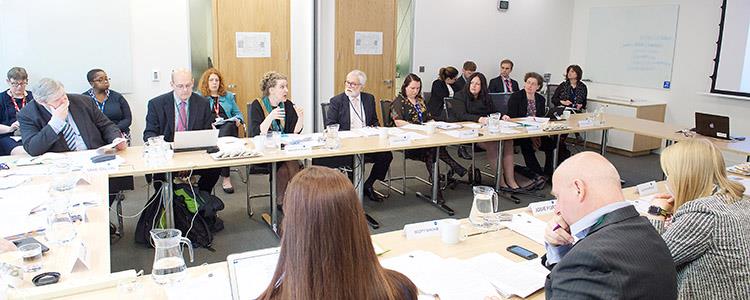There reaches a point where all professions must re-assess how their services match up with emerging technology and market dynamics, and it is no different for optometrists and dispensing opticians.
In the past few years, the College of Optometrists’ Optical Workforce Survey and cross-sector Foresight Report each painted a picture of a future of more clinical services on the high street.
Many independents and even the most commercially-minded of multiples have decided training optometrists to provide more enhanced services, and dispensing opticians to upskill into areas such as low vision, is the only way forward.
The message was also heard loud and clear by the General Optical Council, which has got down to business in preparing universities and CET providers for the future.
‘I think there will be specific changes driven by technology and societal demands for all of our registrants,’ GOC chair Gareth Hadley told Optician. ‘All will be required to perform a wider range of clinical skills than they are called upon to demonstrate at the moment.’
The GOC’s initial Education Strategic Review call for evidence drew 55 stakeholder responses. In December the GOC will launch a consultation on emerging principles and concepts.
Hadley told Optician the regulator would listen to stakeholders in determining the direction of travel for its review, and also seek wider engagement.
He said: ‘I don’t think optics has traditionally been at the forefront of setting out its stall and now is the time for it to step up to the plate. From our perspective, as the professional regulator, what we have to do is ensure that the public is protected. We are doing our bit in nudging other stakeholders, such as the funders, the commissioners and policy makers to open their eyes to the sort of clinical patient-facing activities that our registrants are able to deliver.’
Long-term view
From the GOC’s initial call for evidence, which ran from December 2016 to March 2017, it was generally accepted education must reflect clinical services being more widely available on the high street. Communication elements of practice life were also flagged up for attention.

Hadley (pictured) said: ‘The demand for our registrants to do more is plain to see. Ophthalmology departments in hospitals are bursting at the seams. A lot of the activities that are now focused in hospital could be delivered effectively in community practice.
‘We are talking about diagnosis and treatment going well beyond the refraction and provision of specs.
‘I think we would say to our provider, stakeholders, registrants, businesses and the associations that we were grateful for their thoughts in the call to action. Now what we are looking for them to do is take some action themselves to raise the profile and start making it absolutely crystal clear to funders and policy makers just what they can do.’
Ahead of December’s consultation, the regulator is bringing together a forum of opinion leaders both within optics and commissioning, funding and policy spheres. The forum will report back to a council meeting before an initial consultation document is released in December.
Proposals, which would become part of GOC standards of practise, were expected to be set with a long-term view in mind.
Hadley added: ‘While I can’t really look in a crystal ball at this early stage, my expectation is we may be looking at an educational model that sees enhanced clinical engagement and communication. We are looking towards preparing people for the sort of challenges that are going to face them on day one of their career and equip them to rise to the future challenges that will develop between now and 2060, which is when those who are now qualified will be looking to hang up their ophthalmoscope, if they are still being used by then. We have to take a very long-term view of these things.’
It means the 27,000 individual practitioners registered by the GOC could have very different CET requirements by 2020.
Hadley said: ‘CET will have to change to reflect the additional demand that the international standards will require. I tend not to get hung up on what we call it, whether it is CET or CPD.
‘A lot is made of the suggestion that in some way CET ensures people are kept to the level and standard they had when they were first qualified. But I think that’s a bit of a fiction really.
‘If that were to be borne out in practice we would see some rather strange processes taking place in test rooms, because we’d be requiring people to keep up to the manner in which things were done in the 1970s, which is not the case.
‘So there is already developmental thrust in CET. We will be reviewing CET and CPD and the nature of the thrust to move towards continuous improvement. Although I know it’s there already, we need to be more explicit about it being there.’
The GOC produces educational standards, inspect establishments and licenses them, together with the validation of educational establishments.
Hadley added: ‘What we want to do is get to a position where we enhance the freedom for both our registrants service providers on the one hand and for educational establishments on the other, to rise to the challenge and produce models of education and training, and service delivery, that best protect the public.
‘We’ve not got a monopoly on these issues and in fact it’s not really our responsibilities to drive those sorts of things forward. We just need to make sure the public remain protected and can trust the registrants they consult.’
While the objective for optometrists to upskill in areas such as Mecs, glaucoma, diabetic retinopathy and cataract clinics have been well documented, dispensing opticians are also setting their sights on a more clinical role.

Council members have been discussing education at length
Hadley said: ‘I think many dispensing opticians would say they can do many more things as well. If I was to look into my crystal ball now, what we might see is the development of multi-disciplinary teams, whereby people who are now dispensing opticians, optometrists, ophthalmologists, orthoptists or nursing staff are all engaged in the delivery of eye care. They would be working much more coherently as teams and sharing the work between them in rather different ways.
‘If we think in terms of what dispensing opticians do now, there are challenges in terms of low vision work, and we mustn’t lose sight of contact lens opticians. There are many aspects of Mecs that they can manage. So multi-disciplinary team working gives rise to a whole range of opportunities.’
Regardless, all eye care professionals were assured the education review would develop new models of care rather than putting restraints on existing ones.
He added: ‘That’s what professionalism is all about. I want our registrants to behave as professionals, to reach judgments as to care, to stand by those judgments and deliver the services that are necessary.
‘The more you surround people with rigid rules, the more it ceases to become a professional job.
‘During the call for evidence all the iron filings were pointing in the same direction towards the magnet, but it would be daft of me to continue to believe that will always be the case.
‘There will be issues that emerge but the programme is properly resourced and we have got engagement with a wide range of stakeholders involved in with eye care and funding.
‘So the building blocks are in place. If we experience any obstacles we’re going to have to find ways of managing our way round them. Some obstacles we encounter will contribute positively towards the work, we’re not so arrogant to believe that we alone have got all the solutions. I actually want the solutions to come from elsewhere.’
When the conclusions are reached the GOC will embark on the processes of re-writing parts of the Opticians Act to better reflect the future role of OOs, DOs, CLOs and students. Building extra clinical and communication elements into education programmes seems likely, as does adding more practical experience in high street and hospital settings.
Hadley said: ‘I think there is a degree of catch-up it [optics] has got to do. The core of the undergraduate syllabus for optometry has remained unchanged for around 30 to 35 years, so a lot of the people who are now coming towards the end of their working lives will have been trained under the same sort of model as people now.
‘The world has changed and we need to make sure that people who set out in practice on day one are safe with patients. That’s always been a key requirement on all healthcare regulators. So I think we have got the opportunity to learn from others.
‘If one looks at what certain medical schools do now, you do literally come across a patient on day one of your undergraduate training – and that must be right – when you are providing personal healthcare surely to get early patient exposure must be of benefit.
However, nothing has been set in stone and the latest chapter of the book will remain open to the profession over the festive period – pointed out an optimistic Hadley.
He added: ‘When registrants have eaten their Christmas pud and had too much turkey, they can sit down having watched the Queen and start thinking about their responses to the consultation.’
